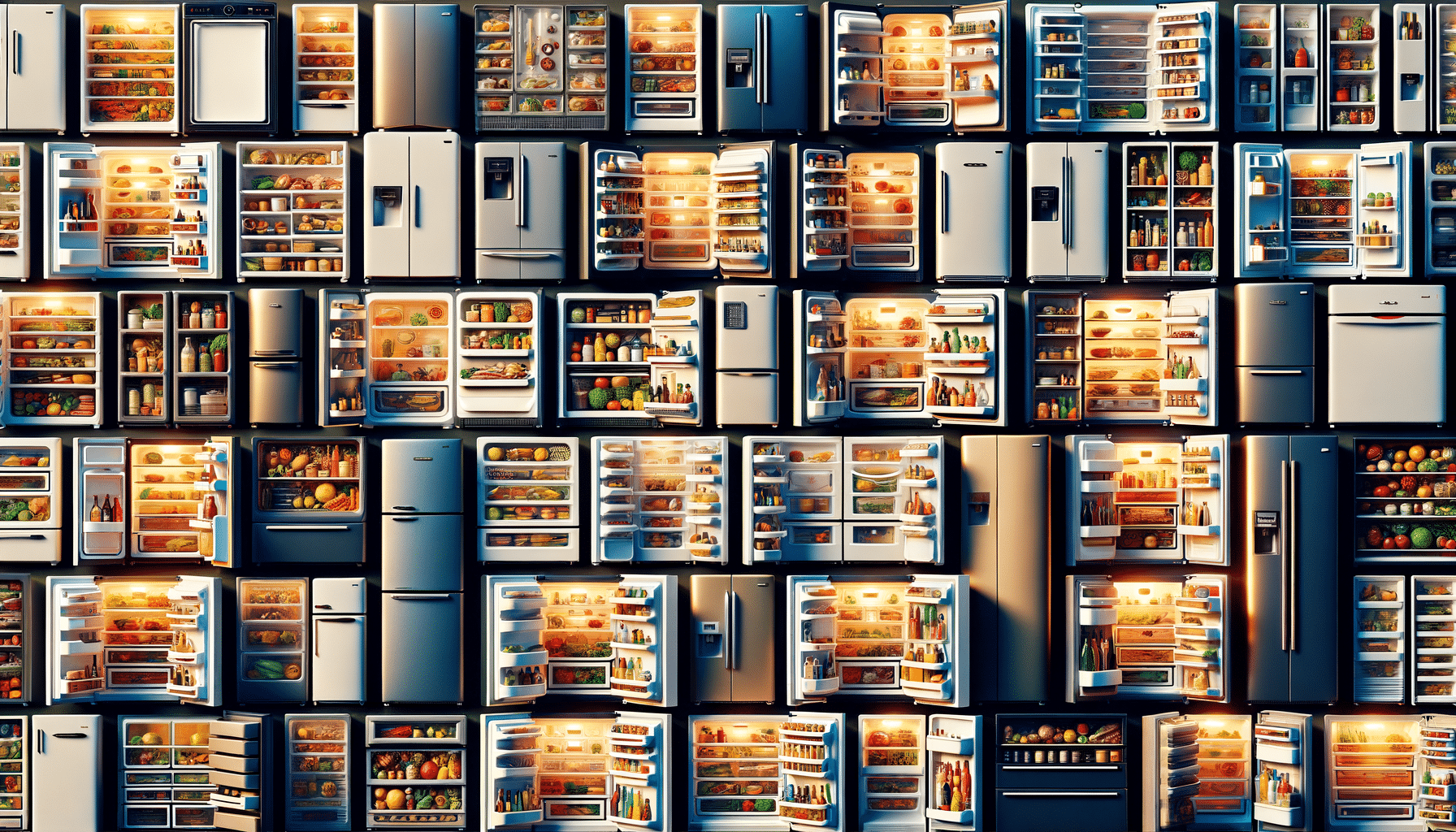Understanding Refrigerators: A Comprehensive Guide
Explore the essential features and benefits of modern refrigerators in this comprehensive guide.

The Evolution of Refrigerators
Refrigerators have become an indispensable part of modern households, evolving significantly since their inception. Originally, they were simple iceboxes designed to keep food cool using blocks of ice. Over the years, technological advancements have transformed them into sophisticated appliances that not only preserve food but also enhance kitchen aesthetics.
Today’s refrigerators come with a variety of features that cater to diverse consumer needs. From energy efficiency to smart technology, these appliances have seen remarkable changes. The introduction of frost-free technology, for instance, eliminated the need for manual defrosting, making maintenance much easier. Additionally, the incorporation of digital displays and touch controls has made them more user-friendly.
The impact of these advancements is evident in the way refrigerators have improved food safety and reduced waste by extending the shelf life of perishable items. As a result, they play a crucial role in modern food storage and management.
Types of Refrigerators and Their Features
Choosing the right refrigerator can be a daunting task given the plethora of options available. Understanding the different types and their features can help consumers make an informed decision.
- Top-Freezer Refrigerators: These are traditional models with the freezer compartment located above the refrigerator. They are known for their simplicity and affordability.
- Bottom-Freezer Refrigerators: With the freezer at the bottom, these models provide easier access to fresh food items stored at eye level.
- Side-by-Side Refrigerators: Featuring a vertical split, these refrigerators offer equal space for both the freezer and fresh food sections, making them ideal for narrow spaces.
- French Door Refrigerators: These have two doors for the refrigerator compartment and a bottom freezer drawer, offering a blend of style and functionality.
- Compact Refrigerators: Perfect for small spaces or as a secondary refrigerator, these are often used in dorm rooms or offices.
Each type comes with its own set of advantages and is suited for different lifestyles and kitchen layouts. For instance, French door models are popular for their spacious design and energy efficiency, while compact refrigerators are favored for their portability.
Energy Efficiency and Environmental Impact
As environmental concerns continue to rise, energy efficiency has become a key consideration for consumers when purchasing refrigerators. Modern refrigerators are designed to minimize energy consumption, which not only helps reduce electricity bills but also lessens the environmental impact.
Energy-efficient refrigerators are equipped with advanced compressors and insulation techniques that enhance performance while using less power. The Energy Star certification is a reliable indicator of a refrigerator’s efficiency, guiding consumers towards eco-friendly choices.
Moreover, manufacturers are increasingly using eco-friendly refrigerants that have a lower impact on the ozone layer. This shift towards sustainable practices reflects a growing awareness of the need to protect the environment while meeting consumer demands.
By choosing energy-efficient models, consumers can contribute to environmental conservation while enjoying the benefits of modern refrigeration technology.
Smart Refrigerators: The Future of Kitchen Appliances
In the era of smart technology, refrigerators have not been left behind. Smart refrigerators are gaining popularity due to their innovative features that enhance convenience and connectivity.
These appliances are equipped with Wi-Fi connectivity, allowing users to control and monitor their refrigerators remotely via smartphone apps. Features such as inventory tracking, recipe suggestions, and energy consumption monitoring are becoming standard in smart refrigerators.
Moreover, smart refrigerators can be integrated with other smart home devices, creating a seamless and efficient kitchen experience. For instance, they can send alerts when the door is left open or when it’s time to replace the water filter.
While smart refrigerators come with a higher price tag, their benefits in terms of convenience and energy savings make them a worthwhile investment for tech-savvy consumers.
Maintenance Tips for Prolonging Refrigerator Life
Proper maintenance is essential for ensuring the longevity and optimal performance of refrigerators. Here are some practical tips to keep your refrigerator running smoothly:
- Regular Cleaning: Clean the interior and exterior surfaces regularly to prevent odors and maintain hygiene.
- Check Door Seals: Ensure the door seals are airtight to prevent cold air from escaping, which can lead to increased energy consumption.
- Temperature Settings: Keep the refrigerator and freezer at the recommended temperature settings to ensure efficient cooling.
- Defrosting: For models without automatic defrosting, regularly defrost the freezer to prevent ice build-up.
- Proper Ventilation: Ensure there is adequate space around the refrigerator for proper ventilation, which helps in efficient cooling.
By following these maintenance tips, users can extend the lifespan of their refrigerators, ensuring they continue to provide reliable service for years to come.